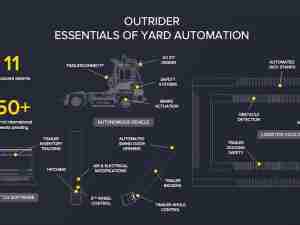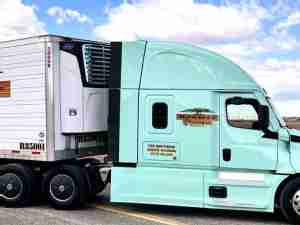As governments struggle to contain Convid-19 one of the greatest assets in economies who have a highly develop road or rail infrastructure is this logistic option. These transport arrangements remain the key assets as to the delivery of not only medical support, the essentials of life but also trade between interdependent economies. The International Federation of Freight Forwarders Associations (FIATA) urges governments to keep these corridors open and provide facilitated clearance for not only goods but those who deliver those goods and to ensure driver health and medical support.
FIATA notes the numerous requests to the EU Commissioner for Transport, requesting the uninterrupted flow of essential goods across the intra-EU borders noting at this time all EU borders remain open for freight transport. It also notes the position between Canada and the United States of America as to the restriction on people across their border but the controlled maintenance of road and rail freight.
FIATA applauds this controlled approach and encourages others economies worldwide with land borders to adopt a similar controlled approach as to the movement of goods. Road transport is the single most deliverer of the last mile and is also the vital interface for air and sea freight domestic delivery. In other places road freight is the manufacturer, supplier and distribution delivery option to the point of destination and is vital for across border trade sustainability.
In this aspect, FIATA, who met at beginning of March with IRU Secretary General, supports the position of the International Road Union stating that:
“The most immediate concern for the road transport sector is to maintain supply chains, especially for essentials such as food and medical items, in the safest way possible for transport workers and citizens and respecting the latest relevant government guidelines. IRU and its member network continue to monitor the situation in regions and across borders, advising transport companies on dealing with the pandemic and its impacts”
While rail takes a more state-owned position in many economies cross border movement by rail continues with various capacity inhibitors however the European Community on rail policy remains one of the most open (and would hopefully be replicated in other continents and economies).
FIATA acknowledges and supports the position of European freight forwarders as expressed by CLECAT that:
“The European Commission work closely to minimise traffic disruptions, especially for essential freight. For rail freight to be able to play a leading role in freight flows, “European Commission and national authorities to consider the following elements in their decision-making process so as to allow rail freight to contribute to the unprecedented logistical challenges faced by European companies and retailers:
- Rail Freight Corridors must become “green lanes” to guarantee European supply chains
- Allow cross border movements for systemic relevant staff
- Safeguard a minimum capacity at maintenance facilities
- Introduce flexibility in the regulatory framework to avoid traffic disruptions
- Coordinated approach to capacity exemption or extension of payment terms for logistics operators such as railway undertakings and terminals.”
These above issues need to be common standards and be addressed by rail operators with their respective Transport Ministry(ies) and border regulator(s) to ensure effective and efficient rail border crossing processes. More than ever, the world needs a well-functioning supply chain if it wants to defeat the Convid-19.









